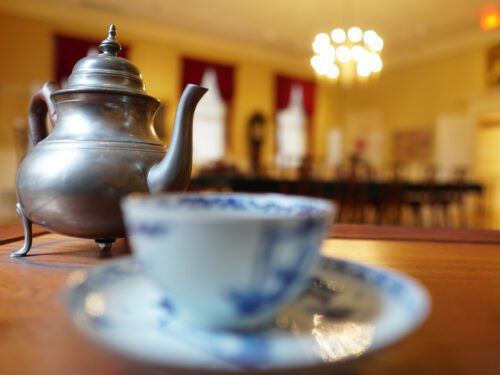Boston Tea Party 250th Anniversary Commemoration
A Reenactment of the Meeting
of the Body of the People
Friday, December 15 & Saturday, December 16
SOLD OUT
The Reenactment of the Meeting of the Body of the People on both Friday, December 15 and Saturday, December 16 are officially SOLD OUT! Please view our other commemorative programming for the 250th anniversary of the Boston Tea and visit our new exhibit Impassioned Destruction: Politics, Vandalism, and the Boston Tea Party.
Reenactment of the Meeting of the Body of the People
Commemorate the 250th anniversary of the Boston Tea Party with the reenactment of the Meeting of the Body of the People at Old South Meeting House! Experience this pivotal moment in our nation’s history as you watch the vigorous debate that led to the destruction of tea on December 16, 1773.
Join Revolutionary Spaces in the room where it all happened—Old South Meeting House! As the largest indoor gathering space in colonial Boston, this building hosted a number of meetings about what to do with the East India Tea Company tea sitting in Boston Harbor waiting to be unloaded and taxed. On that fateful night, a purported 5,000 men gathered for this final meeting about the controversial tea tax, resulting in Samuel Adams giving the signal that would start the Boston Tea Party. Frustrated and angry, colonists marched to Griffin’s Wharf and dumped 342 chests of tea into the Boston Harbor—a major act of defiance to British rule over the colonists and a spark for the American Revolution.
This year, we commemorate the 250th anniversary of the Boston Tea Party with a world-class reenactment of the Meeting of the Body of the People on Friday, December 15 and Saturday, December 16. Doors open at 5:00 PM and the reenactment begins at 6:15pm. Seating is unassigned so be sure to arrive early to pick your seats.
Ticket holders for December 16 can join us prior to the reenactment for a special tea party reception hosted by our Revolutionary Spaces member community. Following the reenactment on that Saturday, guests may proceed to Griffin’s Wharf to watch the destruction of the tea or stay at the Old South Meeting House to watch a livestream of the event. Tickets are not required for the Griffin’s Wharf reenactment and seating is first-come, first-serve. However, due to higher attendance anticipated in this anniversary year, seating at Griffin’s Wharf is not guaranteed for ticket holders.
Your ticket also includes FREE admission to both of Revolutionary Spaces’ sites, the Old State House and Old South Meeting House, from Friday, December 15th through Sunday, December 17th (a $15 value)!
Photo Credit: John Collins Photography
Tea Party Reception
On Saturday, December 16, join Revolutionary Spaces for a special Tea Party Reception hosted by our member community! This free event is open to all ticket holders for the Saturday reenactment. Enjoy a hot cup of tea and mingle with guests in our museum store located on the lower level of the Old South Meeting House. Doors open at 5:00 PM.
Free Museum Admission
All reenactment ticket holders receive FREE admission all weekend to the Old State House and Old South Meeting House. Present your printed or digital ticket to the front desk at either location from Friday, December 15 through Sunday, December 17, 2023. Dive deeper into the history of the Boston Tea Party by visiting our newest exhibit, Impassioned Destruction: Politics, Vandalism, and the Boston Tea Party!
Click here for up-to-date information on changes in hours of operations.
Timeline of the Boston Tea Party
Meet the Characters
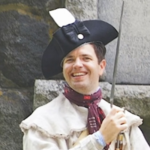 An artisan shoemaker, George Robert Twelves Hewes was a typical working-class Bostonian, a group without whom the buildup to the Revolution could never have succeeded. He was part of the Boston Massacre mob and attended protests at Old South the next day. He also came to the Tea Party meetings and helped dump tea into the harbor afterwards. He lived to be 98 years old. Portrayed by Rory Nolan.
An artisan shoemaker, George Robert Twelves Hewes was a typical working-class Bostonian, a group without whom the buildup to the Revolution could never have succeeded. He was part of the Boston Massacre mob and attended protests at Old South the next day. He also came to the Tea Party meetings and helped dump tea into the harbor afterwards. He lived to be 98 years old. Portrayed by Rory Nolan.
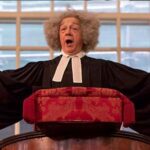 Hailing from a lineage of commerce and public service, Samuel Savage was the moderator of the meetings at Old South that led to the Boston Tea Party. A successful merchant and prominent public figure, he had a close friendship with Samuel Adams. During the war, Savage served in Massachusetts' shadow government as president of the burgeoning state's Board of War. He remained in Weston and in public service until his death in 1797. Portrayed by Henry Cooke.
Hailing from a lineage of commerce and public service, Samuel Savage was the moderator of the meetings at Old South that led to the Boston Tea Party. A successful merchant and prominent public figure, he had a close friendship with Samuel Adams. During the war, Savage served in Massachusetts' shadow government as president of the burgeoning state's Board of War. He remained in Weston and in public service until his death in 1797. Portrayed by Henry Cooke.
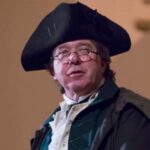 The son of the owner of the Dartmouth, one of the three tea-carrying ships in Boston harbor, Francis Rotch tried to walk a fine line between angering the whigs and protecting his financial interests. At the behest of the meeting at Old South, the 23 year old rode to ask Governor Hutchinson's permission to allow the tea ships to leave harbor but was refused. Upon his return to Old South and delivery of this news, the whigs went to the harbor to toss the tea. Portrayed by Paul O'Shaughnessy.
The son of the owner of the Dartmouth, one of the three tea-carrying ships in Boston harbor, Francis Rotch tried to walk a fine line between angering the whigs and protecting his financial interests. At the behest of the meeting at Old South, the 23 year old rode to ask Governor Hutchinson's permission to allow the tea ships to leave harbor but was refused. Upon his return to Old South and delivery of this news, the whigs went to the harbor to toss the tea. Portrayed by Paul O'Shaughnessy.
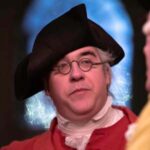 A fiery leader of the Sons of Liberty, Samuel Adams was part of the radical wing of the whigs. A sometime member of the legislature of Massachusetts, Adams constantly poked at royal authority and stoked the flames of resentment amongst Bostonians. On December 16, 1773, his cry of "This meeting can do nothing more to save this country!" signalled the Sons of Liberty to go to Griffin's Wharf to toss the tea. He eventually became the second state governor of the Commonwealth of Massachusetts. Portrayed by Jim Hollister.
A fiery leader of the Sons of Liberty, Samuel Adams was part of the radical wing of the whigs. A sometime member of the legislature of Massachusetts, Adams constantly poked at royal authority and stoked the flames of resentment amongst Bostonians. On December 16, 1773, his cry of "This meeting can do nothing more to save this country!" signalled the Sons of Liberty to go to Griffin's Wharf to toss the tea. He eventually became the second state governor of the Commonwealth of Massachusetts. Portrayed by Jim Hollister.
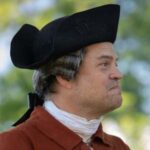 Paul Revere was a Renaissance Man: printer, silversmith, engraver, soldier, dentist, spy. An ardent patriot, Revere was a supporting character in much of the dissentious activity against the British government in the 1760s and '70s. He is best known for his "Midnight Ride" on April 18, 1775, to warn colonists in Lexington and Concord of the movement of British troops to those towns; the next day would feature the first battles of the war. Portrayed by Michael Lepage.
Paul Revere was a Renaissance Man: printer, silversmith, engraver, soldier, dentist, spy. An ardent patriot, Revere was a supporting character in much of the dissentious activity against the British government in the 1760s and '70s. He is best known for his "Midnight Ride" on April 18, 1775, to warn colonists in Lexington and Concord of the movement of British troops to those towns; the next day would feature the first battles of the war. Portrayed by Michael Lepage.
 As one of the seven merchants chosen by the British East India Company to sell tea, Isaac Winslow Clarke's family and home came under attack from the whigs of Boston who threw bricks through windows and barged through doors. His sister Susanna married the prolific artist John Singleton Copley. One of many Loyalist refugees from America during the Revolution, he lived with the Copleys in London before becoming Deputy Commissary-General in Montreal, Canada, in 1812. Portrayed by Shane Clarke.
As one of the seven merchants chosen by the British East India Company to sell tea, Isaac Winslow Clarke's family and home came under attack from the whigs of Boston who threw bricks through windows and barged through doors. His sister Susanna married the prolific artist John Singleton Copley. One of many Loyalist refugees from America during the Revolution, he lived with the Copleys in London before becoming Deputy Commissary-General in Montreal, Canada, in 1812. Portrayed by Shane Clarke.
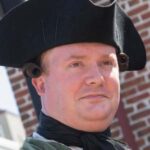 John Hancock was one of the wealthiest men in Boston before the Revolution, making him deeply concerned with the numerous taxes coming across the Atlantic. His first political office was in the Boston Assembly in 1765; by his death in 1793, he had been president of the Massachusetts Provincial Congress and Continental Congress and the first state governor of Massachusetts. Portrayed by Sean O'Brien.
John Hancock was one of the wealthiest men in Boston before the Revolution, making him deeply concerned with the numerous taxes coming across the Atlantic. His first political office was in the Boston Assembly in 1765; by his death in 1793, he had been president of the Massachusetts Provincial Congress and Continental Congress and the first state governor of Massachusetts. Portrayed by Sean O'Brien.
Born in Connecticut in 1749, John Scollay moved to Boston as a young man. Filled with great courage and patriotic passion, he participated in the Boston Tea Party and later served as a Colonel in the Continental Army before becoming a fire warden and selectman in town. May later explored modern Ohio, taking two trips there in 1788 and 1789. Portrayed by David Bell.
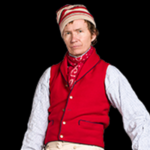 William Molineux's reputation as a firebrand survived his passing in late 1774. A super-radical Son of Liberty and organizer of Boston mobs against Parliament's taxes, Molineux advocted for nonimportation agreements and boycotts of British goods, pushing his fellow whigs further and further into hostile action against the government. Now buried in Granary Burial Ground in Boston, he is often overlooked as a revolutionary leader. Portrayed by Niels Hobbs.
William Molineux's reputation as a firebrand survived his passing in late 1774. A super-radical Son of Liberty and organizer of Boston mobs against Parliament's taxes, Molineux advocted for nonimportation agreements and boycotts of British goods, pushing his fellow whigs further and further into hostile action against the government. Now buried in Granary Burial Ground in Boston, he is often overlooked as a revolutionary leader. Portrayed by Niels Hobbs.
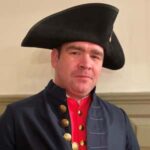 Wilfree Fischer was a tory attendee of the Tea Party meetings at Old South. He held particular grievance with William Molineux and the violence the whigs perpetrated against both property and person of the tories. Portrayed by Brandon Marshall.
Wilfree Fischer was a tory attendee of the Tea Party meetings at Old South. He held particular grievance with William Molineux and the violence the whigs perpetrated against both property and person of the tories. Portrayed by Brandon Marshall.
 Joseph Warren is one of the early tragic losses on the Patriot side of the Revolution. A member of a long-tenured family line, Warren, a doctor, was only in his 30s as Bostonians began to agitate against the Crown; his newspaper articles under the pseudonym "A True Patriot" helped stoke the flames. He quickly rose to prominence in the Patriot ranks. Involved in the Boston Committee of Safety and later the raising of militias, Warren became a General in the Continental Army, falling on June 17, 1775, at the Battle of Bunker Hill. Portrayed by Jarrad Fuoss.
Joseph Warren is one of the early tragic losses on the Patriot side of the Revolution. A member of a long-tenured family line, Warren, a doctor, was only in his 30s as Bostonians began to agitate against the Crown; his newspaper articles under the pseudonym "A True Patriot" helped stoke the flames. He quickly rose to prominence in the Patriot ranks. Involved in the Boston Committee of Safety and later the raising of militias, Warren became a General in the Continental Army, falling on June 17, 1775, at the Battle of Bunker Hill. Portrayed by Jarrad Fuoss.
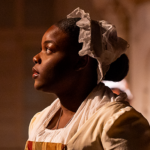 Phillis Wheatley Peters is the first published African American poet. Transported from Africa in her youth to be enslaved in America, Wheatley Peters' owners taught her to read and write, eventually putting her poetic talent to great use. Upon the publication of her poetry, many called for her freedom, which she received in 1774. A congregant of Old South during enslavement, Phillis leaves church records following her manumission, a sign that her attendance was not voluntary and rather due to her owner worshipping there. Portrayed by Adreyanua Jean-Louis.
Phillis Wheatley Peters is the first published African American poet. Transported from Africa in her youth to be enslaved in America, Wheatley Peters' owners taught her to read and write, eventually putting her poetic talent to great use. Upon the publication of her poetry, many called for her freedom, which she received in 1774. A congregant of Old South during enslavement, Phillis leaves church records following her manumission, a sign that her attendance was not voluntary and rather due to her owner worshipping there. Portrayed by Adreyanua Jean-Louis.
 Susanna Copley was born into the Clarke and Winslow families, both of which had high social standing. Her surname comes from her marriage to the renowned and prolific American painter John Singleton Copley. The Clarke family, agents of the East India Company, came under attack from whigs protesting the tea tax, prompting the Copleys to side with the tories. Susanna and her children followed John to London to flee the growing violence in Boston—they lived in the English capital until their deaths. Susanna lived longer, passing in 1836. Portrayed by Diana Dunlap.
Susanna Copley was born into the Clarke and Winslow families, both of which had high social standing. Her surname comes from her marriage to the renowned and prolific American painter John Singleton Copley. The Clarke family, agents of the East India Company, came under attack from whigs protesting the tea tax, prompting the Copleys to side with the tories. Susanna and her children followed John to London to flee the growing violence in Boston—they lived in the English capital until their deaths. Susanna lived longer, passing in 1836. Portrayed by Diana Dunlap.
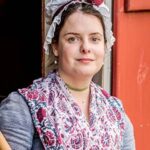 Lucy Flucker's marriage to Henry Knox. one of the most important officers in the Continental Army, was a social faux pas: she married below her class and was disowned by her family in the process. She also deviated from her family politically: her father Thomas was the Royal Secretary of Massachusetts. A well-educated and assertive woman, Flucker established herself as Knox's equal in the home, and many of her letters to her battlefield-bound husband survive, telling of the couple's mutual love and respect and the difficulties of family in wartime. Portrayed by Sarah McDonough.
Lucy Flucker's marriage to Henry Knox. one of the most important officers in the Continental Army, was a social faux pas: she married below her class and was disowned by her family in the process. She also deviated from her family politically: her father Thomas was the Royal Secretary of Massachusetts. A well-educated and assertive woman, Flucker established herself as Knox's equal in the home, and many of her letters to her battlefield-bound husband survive, telling of the couple's mutual love and respect and the difficulties of family in wartime. Portrayed by Sarah McDonough.
 While there is much scholarly confusion over Prince Hall's early years, there is no question regarding his lasting influence. Born somewhere between 1738 and 1748 and enslaved to William Hall of Boston, Hall was a leatherworker. He was manumitted in 1770, owned real estate, and could vote in his hometown of Medford. When the Revolution broke out, Hall fought at the Battle of Bunker Hill where Dr. Joseph Warren was killed. He later became a minister in the African Methodist Episcopal Church in Cambridge and would go on to found the first African American Freemason Lodge, the oldest recognized and continuously active Black organization in America. Portrayed by Julius Hobert.
While there is much scholarly confusion over Prince Hall's early years, there is no question regarding his lasting influence. Born somewhere between 1738 and 1748 and enslaved to William Hall of Boston, Hall was a leatherworker. He was manumitted in 1770, owned real estate, and could vote in his hometown of Medford. When the Revolution broke out, Hall fought at the Battle of Bunker Hill where Dr. Joseph Warren was killed. He later became a minister in the African Methodist Episcopal Church in Cambridge and would go on to found the first African American Freemason Lodge, the oldest recognized and continuously active Black organization in America. Portrayed by Julius Hobert.
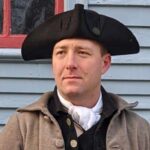 A figure perhaps paradoxical to modern viewers, Josiah Quincy, Jr., was a staunch Patriot in the lead-up to the Revolution. A talented young lawyer, alongside John Adams, Quincy defended the soldiers of the Boston Massacre at trial, an act predictable of a Loyalist. However, he sided with his father's political leanings, supporting whig activity until his death in 1775. His family experienced a schism typical of many during the Revolutionary and Civil Wars: Josiah's brother, Samuel, was a Loyalist. Similar to the Flucker-Knoxes, the Quincys are exemplative of the political lines drawn within both society and families that could shatter interpersonal relationships.Portrayed by Matt Payson.
A figure perhaps paradoxical to modern viewers, Josiah Quincy, Jr., was a staunch Patriot in the lead-up to the Revolution. A talented young lawyer, alongside John Adams, Quincy defended the soldiers of the Boston Massacre at trial, an act predictable of a Loyalist. However, he sided with his father's political leanings, supporting whig activity until his death in 1775. His family experienced a schism typical of many during the Revolutionary and Civil Wars: Josiah's brother, Samuel, was a Loyalist. Similar to the Flucker-Knoxes, the Quincys are exemplative of the political lines drawn within both society and families that could shatter interpersonal relationships.Portrayed by Matt Payson.
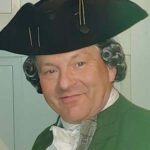 Dr. Thomas Young was a paradoxical Patriot as the Revolution approached. At times a proponent of violence, at others a pacifier, Young was prolific in his attendance in the Boston Town Meeting. Following his tenure as a physician in New York, his early years in Boston featured his advocation for violence against those who would suppress freedom. He also called on street mobs following the Boston Massacre to refrain from violence, and defended Francis Rotch at the meetings at Old South preceeding the Tea Party. A close associate of Samuel Adams, Young served on the Boston Committee of Correspondence, one of many in the colonies that worked to organize colonial resistance to England. Portrayed by Frank Chamberlain.
Dr. Thomas Young was a paradoxical Patriot as the Revolution approached. At times a proponent of violence, at others a pacifier, Young was prolific in his attendance in the Boston Town Meeting. Following his tenure as a physician in New York, his early years in Boston featured his advocation for violence against those who would suppress freedom. He also called on street mobs following the Boston Massacre to refrain from violence, and defended Francis Rotch at the meetings at Old South preceeding the Tea Party. A close associate of Samuel Adams, Young served on the Boston Committee of Correspondence, one of many in the colonies that worked to organize colonial resistance to England. Portrayed by Frank Chamberlain.
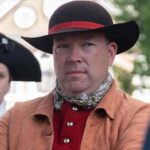 Archibald Wilson was a conservative attendee of the Tea Party meetings. His notably criticized Samuel Adams, claiming that Adams' motivation for opposing the tea was to supplement Bostonian diets with Adams' imported rum. A merchant himself, Wilson cared deeply about the ability of individuals to maintain their own business how they wanted. Portrayed by Alex Cain.
Archibald Wilson was a conservative attendee of the Tea Party meetings. His notably criticized Samuel Adams, claiming that Adams' motivation for opposing the tea was to supplement Bostonian diets with Adams' imported rum. A merchant himself, Wilson cared deeply about the ability of individuals to maintain their own business how they wanted. Portrayed by Alex Cain.
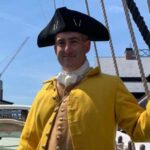 Town criers were in use throughout the colonial period to announce news to townspeople. Dating centuries back in the English world, they typically worked for the King, eventually coming into use for the military and, later, private uses. Some places, such as Alexandria, Virginia, and Sylvania, Ohio, still employ town criers as ceremonial officiants, parade leaders, and ambassadors to other towns and countries. Portrayed by Ryan Daniels.
Town criers were in use throughout the colonial period to announce news to townspeople. Dating centuries back in the English world, they typically worked for the King, eventually coming into use for the military and, later, private uses. Some places, such as Alexandria, Virginia, and Sylvania, Ohio, still employ town criers as ceremonial officiants, parade leaders, and ambassadors to other towns and countries. Portrayed by Ryan Daniels.
Loyalists vs. Patriots
If you are a LOYALIST, you might argue...
- Even with the tea tax, the tea is cheaper than it has ever been before! It is even cheaper than the smuggled Dutch tea available in the colonies.
- The tea tax is minimal!
- It is the only tax remaining out of many that were passed by Parliament in the 1760s. All other taxes were rescinded when they proved ruinous to the colonies; the three pence per pound tax can hardly be termed ruinous!
- Taxation is the right of every government!
- Taxes have always existed and will always exist!
- All Englishmen pay taxes!
- Along with the rights and privileges of being an Englishman comes the duty and responsibility of paying taxes.
- This tax strengthens our relationship with England and the Empire and benefits us directly!
- We receive the protection of the British military—the strongest military force in the world! This military force protected us from French attempts to take the colonies in the French-Indian War.
- British troops protect us as well from native peoples who are still allied with the French, and who continue to terrorize us along our frontier borders.
- The tax pays for administrators to run the colonies.
- As part of the British Empire, we maintain a special trade status; we receive the highest quality of goods from England, and are able to trade with all areas of the Empire with few import duties.
- We are all Englishmen, and are represented in Parliament.
- It is unreasonable to suggest that colonists are not represented in Parliament. It is well known that Parliament does not provide for geographic representation, but that there is virtual representation! Virtual representation states that the members of Parliament spoke for the interests of all British subjects rather than for the interests of only the district that elected them.
- Entire cities in England—Leeds, Manchester, Birmingham, and Liverpool—do not have representation!
- Mr. Franklin and others in England convey our ideas and needs to Parliament.
- Besides being treasonous, the talk of breaking up the Empire is unreasonable. Locke wrote that only an unresponsive government should be overthrown; Parliament has proven to be responsive by rescinding taxes and other policies that the colonists objected to. There should be no loose talk about leaving the Empire.
- The East India Company is a beneficial monopoly.
- The tea is cheaper now because Parliament is helping the East India Company remain solvent.
- Were the East India Company to go bankrupt, it could cause widespread economic depression throughout the Empire.
If you are a PATRIOT, you might argue...
- The tea tax, despite its small amount, is outrageous.
- The tax pays the salaries of administrators, most of whom are foreign-born, to run our government. They have no responsibility or loyalty toward the people whom they govern. They are unaware of local needs, not used to our local customs, and insensitive to our local talents!
- It is not the amount of the tax, but the principle. Other outrageous taxes were enacted in the past and were proven to be ruinous. This tax is no different!
- The tax creates a monopoly.
- Only seven men control the selling of tea in Boston. If this monopoly is sustained, what will be next? Iron? Lead? Paint? Glass? Merchants will be driven out of business!
- The tax is simply to provide revenue to keep the East India Company afloat!
- The restrictive taxes have hampered merchants by forcing them to do business outside of the Empire, in some cases forcing them to become smugglers to stay in business!
- The colonies are an important part of the Empire.
- We are an economically important colony, but are not treated as such.
- American colonial free trade with other countries will enrich and strengthen the Empire as a whole. Parliament must think in the long term.
- We are Englishmen in America, and are reputed to have the rights of Englishmen, but these are not respected.
- The colonies are not represented in Parliament.
- There is no opportunity for our ideas to be expressed in Parliament. We have no say in how and on what we are taxed.
- We have been forced to govern ourselves for over 100 years due to Imperial neglect, and now the war debts suddenly make them remember, regulate, and tax us!
- The soldiers in Boston are a menace to us!
- They have always contributed more to the unrest than the peace. (Remember the Boston Massacre?!)
- The presence of soldiers was forced on the people of Boston, and not requested by the assembly. Why pay for unwanted tormentors?
Accommodations
Revolutionary Spaces is pleased to partner with Hyatt Regency Boston to provide accommodations for visitors coming to Boston to commemorate the 250th anniversary of the Boston Tea Party. Hyatt Regency Boston is located at 1 Ave de Lafayette, Boston, MA 02111—just three blocks from Old South Meeting House (less than a 10-minute walk).
For groups that need less than 10 rooms, enter Revolutionary Spaces' corporate code 226217 for a discounted rate. To book 10 rooms or more, contact Douana Offre at douana.offre@hyatt.com to arrange a room block.
Boston Tea Party 250th Anniversary
Revolutionary Spaces thanks our Boston Tea Party 250th Anniversary Commemoration Transformational Partner Meet Boston Foundation for supporting transformational experiences in this critical anniversary year.








